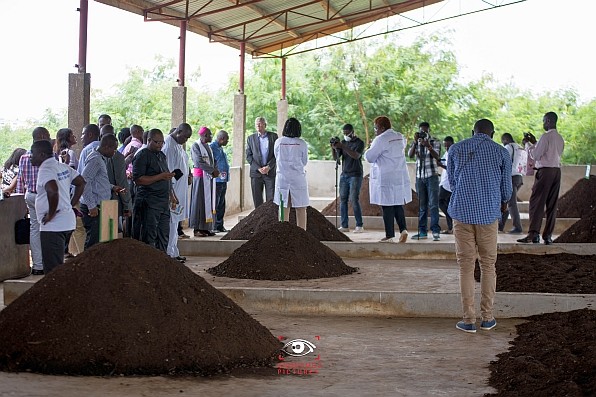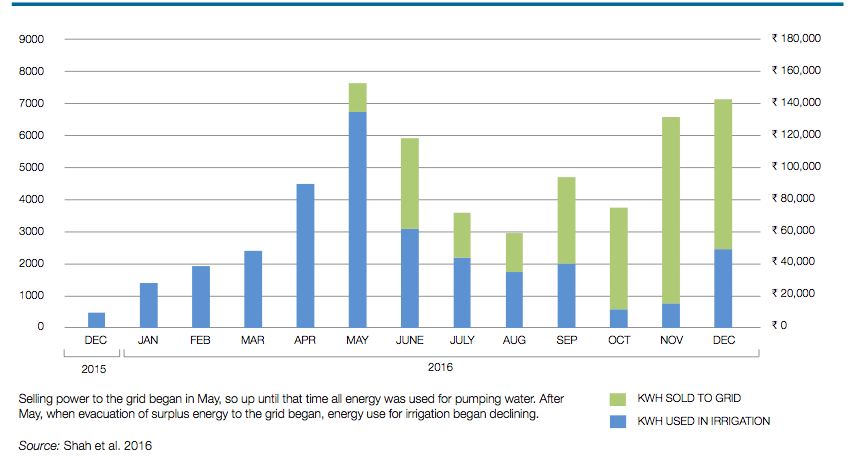This week marks the launch of the new CGIAR research portfolio. Izabella Koziell, Program Director, lays out the ambitions of the CGIAR Research Program on Water, Land and Ecosystems (WLE).
We face a familiar challenge
Global food demand is growing and is projected to, by 2050, increase by at least 60% above 2006 levels. In response to this demand, new technologies and increased inputs have contributed to farm system intensification, leading to significant yield gains and advances in food security. However, growing evidence shows that intensification is at the expense of multiple other social and environmental concerns.
Today, agriculture is a major contributor to the ongoing degradation of the environment. More than 70% of global freshwater abstracted by humans is used for food production, and unsustainable use of fertilizer and pesticides contributes to water pollution. A fourth of the world‘s land area is or is on its way to being highly degraded. Despite this, one in nine people still go hungry.
If we do not act quickly in reversing these trends, environmental degradation is likely to reach tipping points after which the water, land and other ecosystem services necessary to meet future food demands will be irreversibly lost.
Our commitment to the Sustainable Development Goals underscores that it is simply no longer possible to pursue development in terms of singular objectives, and we know that intensification for productivity as a sole objective is not sustainable. Rather, sustainable intensification requires operating within the limits of environmental sustainability as well as contributing to livelihoods and resilience.
Yet, even now—when mass migration, political conflicts, climate change and volatile markets represent unprecedented risks, especially for the poorest and most marginalized—we still struggle to achieve sustainability at scale. But, if it’s not for a lack of insight about the importance of sustainability, or what it constitutes, why is it not yet second nature?
Creating incentives through new business models, institutions and policies
Sustainable intensification of farming systems hinges on solutions that are not only environmentally sustainable, essential as that is, but also socially and economically viable. This implies creating the right incentives for everyone involved, which is critical to scaling these solutions up.
In WLE, we are working to identify replicable, scalable solutions, particularly in the form of business models, institutional innovations and policy reforms. Then we test and trial these prototypes to be able to provide the evidence needed to drive forward changes in how we invest in and make decisions on sustainable agricultural development.
For example, we have helped establish the first commercial co-composting plant in West Africa. It responds to the challenge that farmers, especially in peri-urban areas, struggle with poor soil health. This initiative promotes the principles of a circular economy by producing easily accessible, safe and effective fertilizer made from fecal sludge and organic waste, thus helping to bring nutrients lost in city waste back to the agricultural sector. At the same time, it allows municipalities to reduce health and pollution issues, while recovering some of the costs of waste management. This business model—and others like it—thus addresses both environmental and social concerns and is an economically viable approach to making intensification of farming systems more sustainable.

Another example is an innovative institutional arrangement in India that helps protect groundwater resources, which is critical to the sustainable intensification of irrigated farming systems. Here, solar-powered pumps represent a green alternative to electric pumps, but because of the dramatic reduction in the cost of operation, can also lead to over-pumping. To avoid this, WLE is trialing a scheme in which sunshine is treated as a cash crop, with utility companies buying back excess power from farmers, thus giving them incentive to only pump the water they need.
However, to also make this solution attractive and viable to utility companies, it is critical to reduce the administrative burden related to buying back power from individual farmers. Therefore, we have helped establish the world’s first solar cooperative, which reduces transaction costs for the utility but retains benefits for farmers. This pilot could contribute to India’s ambitious political vision of establishing 100GW of solar energy by 2022, thus enhancing incentives for Indian authorities to take the model to scale.
Finding ways to nudge behavior change
Enabling scaling up of sustainable solutions also hinges on understanding the rationales for current unsustainable behaviors, including political economies, socio-economic barriers and gaps in knowledge that hamper progress.
In South Asia, Southeast Asia and Central America, we have piloted 'experimental games' to raise farmers’ awareness of how their decisions influence the quantity and quality of common resources, such as groundwater. In India, we found that farmers’ inability to collectively manage groundwater was due in part to a lack of information: many thought that groundwater levels were mostly affected by rainfall and had not understood that selecting crops that require a lot of water can also contribute to depleting groundwater resources. The experimental games help make explicit such connections.
Similarly, working with communities in the Mekong Delta to co-design research questions and collect data has helped local people better understand their own role in managing water and land resources. Now, farmers have adapted their livelihood strategies to match the changing environment that they are so dependent on.
These participatory approaches have proven a useful entry point for identifying and overcoming barriers that stand in the way of large-scale change.
Taking our work to the next level
Going forward into the next phase of the program, this is the kind of work we will focus on: nudging behavior change from the ground up, demonstrating which interventions work, providing convincing evidence to decision makers and investors, and developing blueprints that allow others to scale up solutions for sustainable intensification beyond the local level.
Developing such scalable solutions requires responding to specific challenges, working across sectors and disciplines, and learning from past experience. In the coming years, we will focus on bringing together evidence and knowledge from within the program and across CGIAR.
One first step will be publishing a series of briefs that synthesize research from the program’s first phase and provide insights on truly sustainable, scalable solutions such as the ones above. These solutions are a key part of our contribution toward a food-secure future, in which agriculture thrives within healthy ecosystems and delivers enduring prosperity for farming communities.



